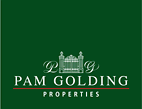Meeting development needs in Mbekweni
2009-09-16
Faadiel Essop
THE establishment of the relatively small prayer location in Mbekweni represents a beacon of hope for the growth of Islam in this area. The building was kindly made available by a local businessman who previously used to employ it as an ice-cream store. As I ventured inside I noticed the sprightly room was filled with a number of young Muslims from the area. The scene reminded me of the early days of Islam in Mecca when especially the young and poor were attracted to its message. One sensed that the local community is proud of this achievement, and quite rightly so, since it was largely established by their own efforts. This was indeed a recurring theme that emerged during my visit, i.e. the community’s strong will to develop organically. I also quickly learnt that well-intended help from the ‘outside’’ is often too prescriptive and characterised by a ‘we know what is best for you’ type of approach. What would be more appreciated is an investment into developmental needs in order to establish a viable and thriving Muslim community. The resident religious leader, Imam Dawood Mabhanti, is quite active in arranging various programs to promote Islam in the area and to uplift the community at a social level, with the emphasis on developmental aspects. Some of these initiatives include an exciting project where students are empowered by art lessons. Here the class convenes twice a week and there are currently nine students attending. The great enthusiasm for such events is indeed admirable since they lack the necessary financial resources for supplies e.g. brushes and paint. Plans are in the pipeline for some art works to be exhibited at appropriate forums in Cape Town. There is a madressah (religious class for youths) held every day of the week with an attendance of about 20 students. The community also organises successful tassauwuf (spiritual development) classes, thikr sessions (religious incantations) and the jumu’ah salah (Friday prayer). According to the Imam approximately 40 people attend the weekly Friday congregational prayer. The community in Mbekweni is poised to become a role model of cross-cultural interaction and tolerance. For example, and perhaps for the first time, the annual moulood celebrations (birthday of Prophet Muhammad*) were organised with the local African expression fused together with Somali input and also contributions from Paarl Muslim community members. This unique experience led to an attendee commenting that ‘it was the best moulood I have ever experienced”. This insightful approach by Mbekweni Muslims is likely to be a pointer how more established Muslim communities should promote cross-fertilisation and co-operation between various groupings and cultures. Another focus area is the establishment of job creation projects that will be tied in with the local prayer facility. One is again reminded of the early days of Islam in Medina where the mosque was the central axis around which the entire community revolved. Plans include management training, skills development, and presenting courses on dawah (propagation). For example, they intend to employ an old leather cutting machine to train individuals to make belts and wallets that can be sold to locals and tourists. A Qur’an award ceremony was recently organised to recognise the efforts of five students who learnt how to read the Qur’an within a three-month period. What makes this achievement so remarkable is that none of the students had any previous experience of reading Arabic. In line with their developmental approach the community intends to send two students to Medina (Saudi Arabia) by year end to go on a six-year advance program. Omar James, who is due to depart for Medina later this year, mentioned that he converted to Islam not very long ago after being attracted by its inspiring message. The plan is for students to eventually return to the community in order to plough back their expertise. Crucially, students for this program are selected by two criteria, i.e. completion of high school with good grades, and memorisation of one chapter of the holy Qur’an. For Ramadan, members of the community usually break their fast here and the tarawih prayers (20 rakats) are also performed every night. After the evening prayers, several students sleep in the prayer facility until early morning when they enjoy the pre-dawn meal (suhur) and also perform the dawn prayer (fajr salah). Muslims in the area face several challenges since most of them come from families with backgrounds that are not Muslim. This includes the availability of halal food at their homes and acceptance at school or the community. Recently, Imam Dawood reached an agreement with the local high school so that students are now given time off to attend the weekly Friday prayer (jumu’ah salah). Eid prayers will be performed at the prayer location and all are welcome to attend. * May God’s peace and blessings be upo
More
News
|


